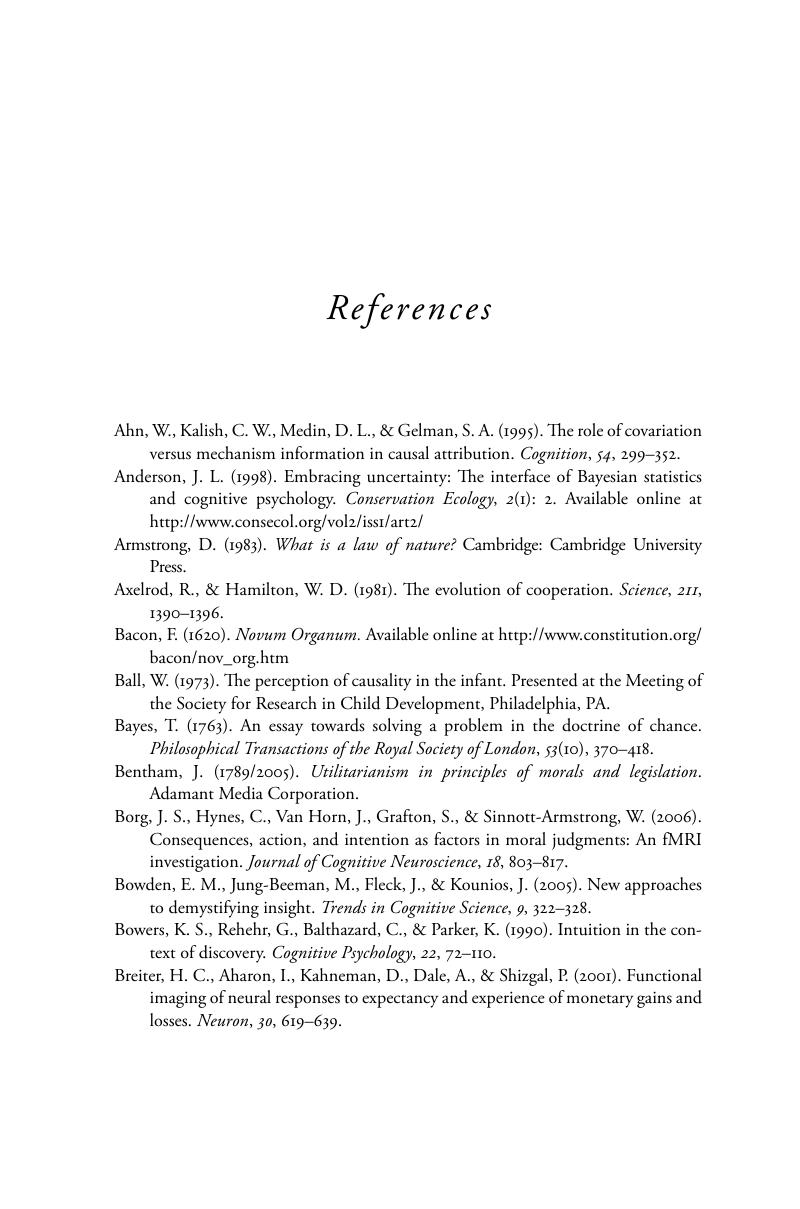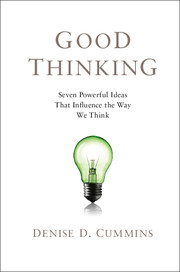References
Published online by Cambridge University Press: 05 June 2012
Summary

- Type
- Chapter
- Information
- Good ThinkingSeven Powerful Ideas That Influence the Way We Think, pp. 185 - 196Publisher: Cambridge University PressPrint publication year: 2012



